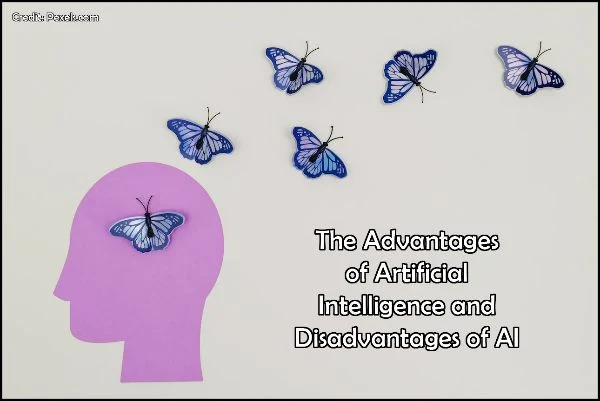Artificial Intelligence or AI stands as one of the most revolutionary technologies in our era. It has the potential to reshape industries, revolutionize how we live and work and drive innovation to new heights. However, like any powerful tool, AI comes with its own set of advantages and disadvantages. In this article, we will delve into the world of AI, exploring the benefits it brings and the challenges it poses.
{tocify} $title={Table of Contents}
1. What is Artificial Intelligence?
Before we dive into the advantages and disadvantages, let's clarify what AI entails. Artificial Intelligence denotes the replication of human intelligence processes by machines, particularly computer systems.
Read more about What Is Artificial Intelligence?
These processes include reasoning, learning, problem-solving, language understanding and perception. AI systems can be designed to perform tasks that typically require human intelligence, such as visual perception, decision-making, speech recognition and language translation.
2. The Advantages of Artificial Intelligence
a) Automation of Repetitive Tasks
One of the primary advantages of Artificial Intelligence is its ability to automate repetitive and mundane tasks. AI-powered machines can perform these tasks tirelessly and with remarkable precision. This frees up human workers to focus on more creative and complex aspects of their jobs.
b) Improved Decision-Making
AI systems can process vast amounts of data and extract valuable insights from it. This capability aids businesses and organizations in making data-driven decisions. AI algorithms can analyze data faster and more accurately than humans, leading to better choices and outcomes.
c. Enhanced Efficiency and Productivity
AI can significantly boost efficiency and productivity across various industries. Whether it's optimizing supply chain operations, streamlining customer service or accelerating research and development, AI-driven solutions can deliver substantial gains in efficiency.
d. 24/7 Availability
AI-powered systems do not require rest or breaks. They can provide round-the-clock services, making them invaluable in applications like customer support and cybersecurity, where constant vigilance is essential.
3. The Disadvantages of Artificial Intelligence
a. Job Displacement
While AI can automate tasks, it also raises concerns about job displacement. As machines take over routine jobs, there is a potential for job loss in certain industries. However, many experts argue that AI can also create new job opportunities, especially in fields related to AI development and maintenance.
b. Privacy Concerns
AI's ability to process and analyze vast amounts of data raises significant privacy concerns. The collection and use of personal information for profiling and targeted advertising have sparked debates about individual privacy rights.
c. Lack of Creativity and Empathy
AI lacks the creative and empathetic abilities that humans possess. While it can perform specific tasks with high efficiency, it cannot replicate human creativity, emotional intelligence or empathy. This limitation is particularly relevant in fields that require a human touch, such as art, therapy and caregiving.
d. Dependence on Technology
As society becomes increasingly reliant on AI, there is a growing concern about our dependence on technology. Overreliance on AI systems can lead to vulnerabilities, especially if the technology malfunctions or is compromised by malicious actors.
4. The Ethical Considerations
Beyond the technical aspects, AI also raises ethical questions. Issues such as bias in AI algorithms, autonomous weapons and the impact on society must be carefully considered. Striking a balance between technological advancement and ethical responsibility is a critical challenge.
5. Conclusion
In conclusion, the advantages of Artificial Intelligence are vast and promising, offering improved efficiency, data-driven decision-making and automation of tasks. However, it also presents challenges, including job displacement, privacy concerns, and the absence of human qualities like creativity and empathy. As we continue to advance in the field of AI, it is crucial to address these challenges ethically and responsibly to harness the full potential of this transformative technology.



Post a Comment